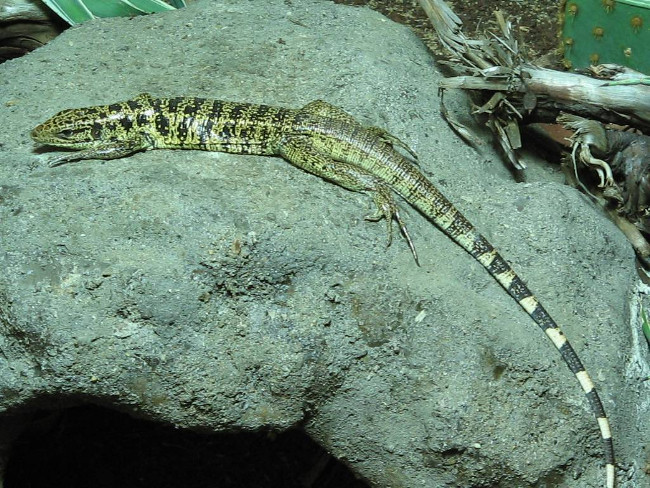Global warming is killing intestinal bacteria in lizards
A new study shows that climate change can threaten reptiles by reducing the number of intestinal bacteria in them.
Specifically, scientists from the University of Exeter and the University of Toulouse have announced that the temperature of 2-3 degrees Celsius over the past time has lost 34% of the diversity of gut microbiota of Common lizards, typically viviparous species.
In the latest experiments, lizards were placed in a temperature control tank with tightly controlled samples of intestinal microorganisms.

Experimental results show that the higher the temperature, the more diverse the microorganisms in the lizard intestine reduce this risk to the reptile's survival. To do this, the team of scientists has raised the temperature of the laboratory to 2-3 degrees Celsius in accordance with the current global temperature rise.
Dr. Elvire Bestion of the Institute of Sustainable Environment and Penryn University in Cornwall said: "Our research shows that relatively small increases in temperature can have a significant impact on intestinal bacteria in lizards. .
More experiments are needed now and we may see many similar conditions in ectotherm species such as cold-blooded, amphibian, and animal-dependent species that rely heavily on external heat.
' Because intestinal bacteria are important for digestion, it is necessary to continue to study this negative impact from climate change '.
Moreover, climate change is now considered to be the biggest threat to biodiversity and ecological networks, but Dr. Bestion said the impact of having microbes in plants and animals not much known before.
She said: ' Now we begin to understand the importance of gut microbiology with the biological mechanism of many species, including humans '.
These gut bacteria are associated with digestion, immunity and obesity.
Previously, many intestinal bacteria were supplemented by yogurt, marketed, increased health walls, intestinal microbiota but no studies have been done to show how climate change affects to these microorganisms.
The study was published in Nature Ecology and Evolution, entitled " Warming climate reduces the intestinal microbial diversity in vertebrate habitats. "
You should read it
- ★ The surprising relationship between climate change - birth rate and consequences
- ★ Climate change is causing the sea to flow faster, scientists are still confused about what the harm will be
- ★ There are signs of ecological change due to climate change in the arid valley of Antarctica
- ★ Climate change puts bees at risk of extinction, but it's not too late for humanity to save them and save themselves
- ★ Look for evidence of climate change in Antarctica with an iPhone